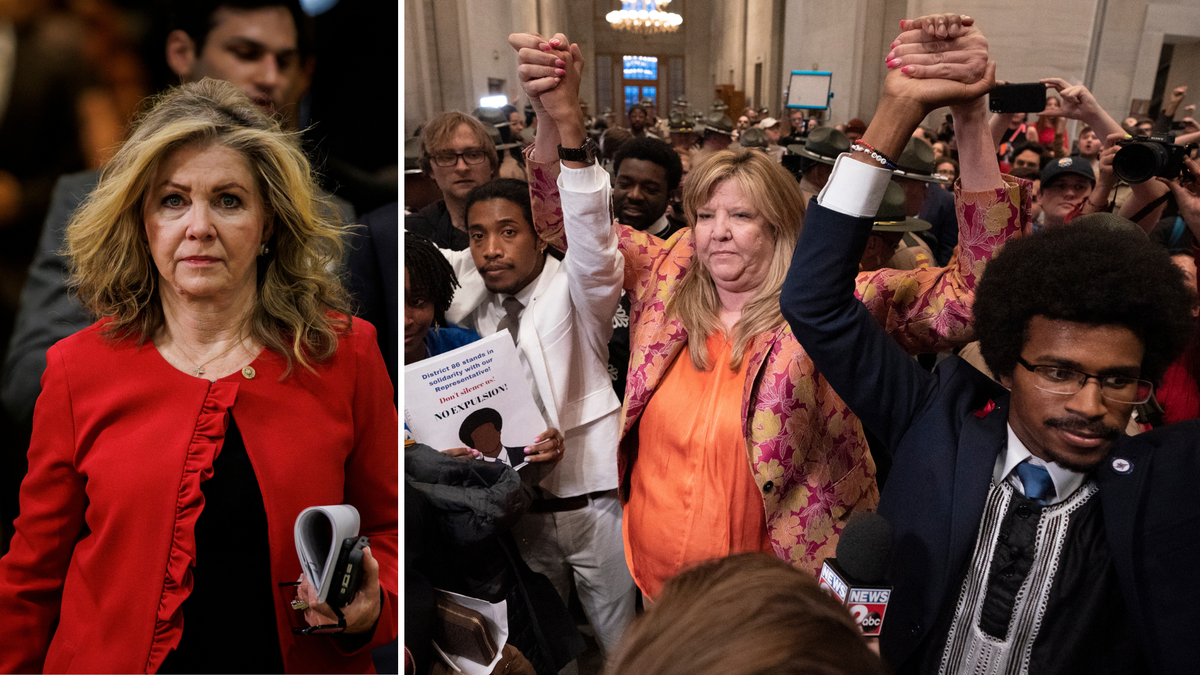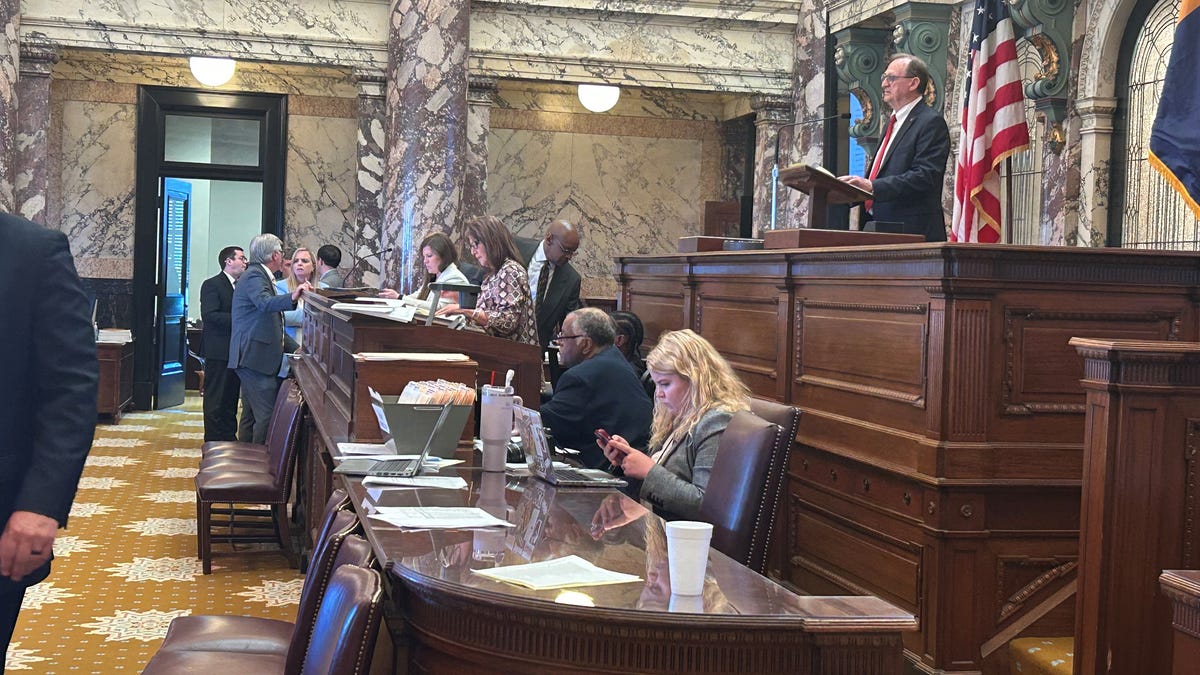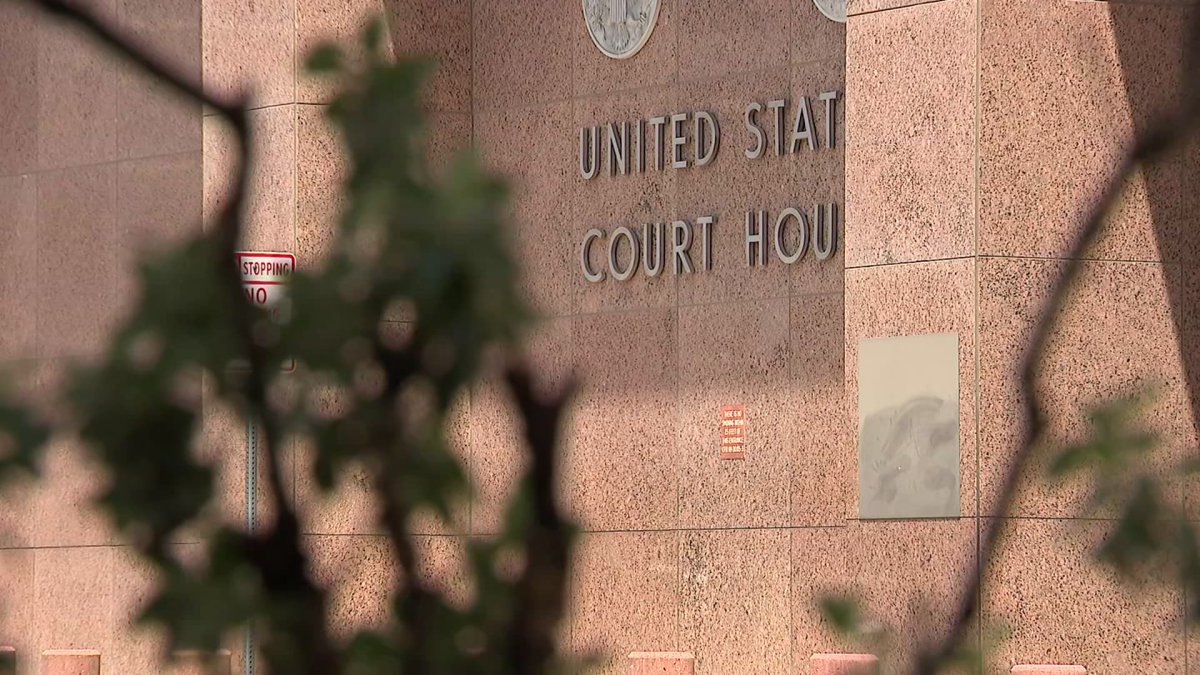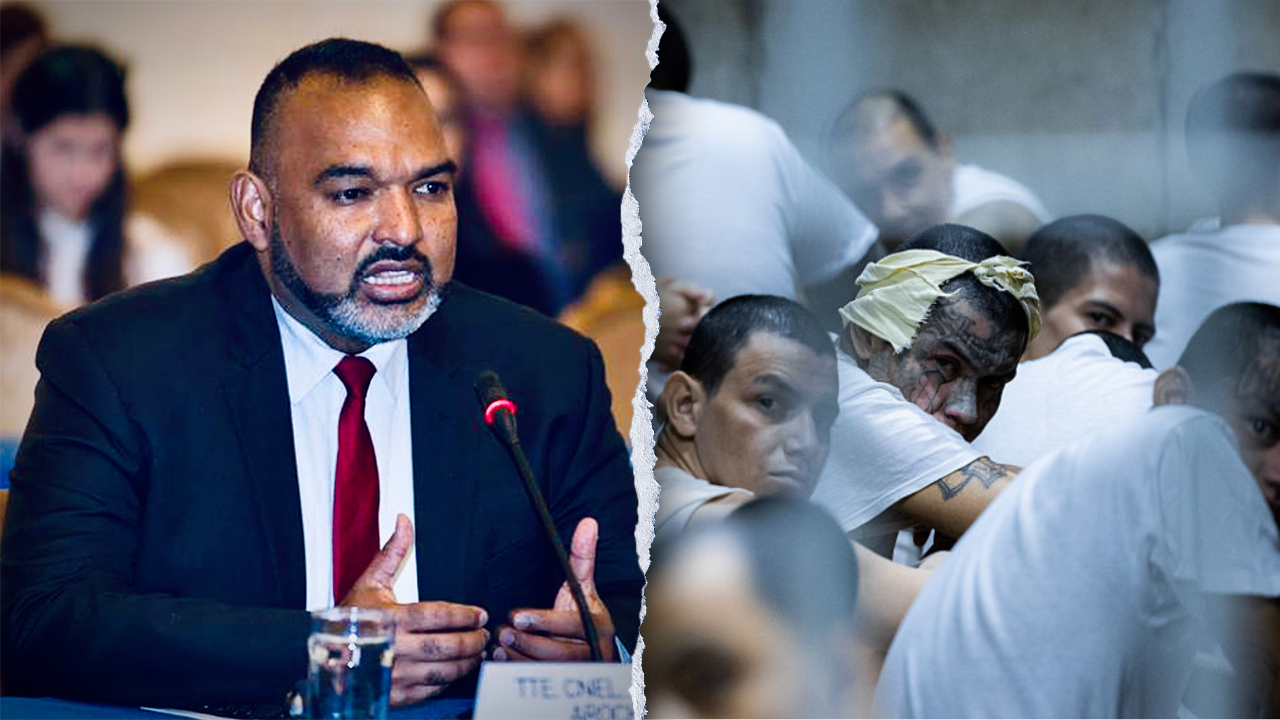Tennessee
Gloria Johnson of the ‘Tennessee 3’ Is Coming for Marsha Blackburn’s Senate Seat

Tennessee State Rep. Gloria Johnson (D), one of the “Tennessee Three” who led chants for gun reform on the floor of the State House in March, has launched an exploratory committee to run for Senate in 2024. It’s the seat held by Sen. Marsha Blackburn (R-Tenn.), a shrieking embodiment of conservative victimhood and persistent reminder that women also uphold the patriarchy.
Johnson, 61, is a retired special education teacher who joined State Reps. Justin Jones and Justin Pearson to call for gun reform in March, following a deadly mass shooting at a Nashville elementary school. Johnson, Jones, and Pearson approached the House podium between bills without being recognized to speak in order to lead the chant as protestors packed the galleries. And for this grave sin, Tennessee Republicans moved to expel all three.
The legislature spared Johnson by a single vote but voted to expel Jones and Pearson, who are both Black. According to leaked audio, Republicans were worried about looking racist but did it anyway. (Jones and Pearson were reinstated on an interim basis and they officially won their seats back in a special election last week.)
When CNN asked Johnson about why she thought the legislature treated her differently, she didn’t mince words. “I think it’s pretty clear. I’m a 60-year-old white woman, and they’re two young Black men,” she said.
Johnson appears to use her status as a white woman for good. Meanwhile, Blackburn, the first woman U.S. senator from the state, uses her white womanhood to attack the right to birth control, defend Neanderthals, and ask the first Black woman Supreme Court nominee to define what a woman is.
Johnson filed her exploratory paperwork last week, according to the Associated Press, a step that usually comes just before a campaign launch and allows a potential candidate to begin raising money. No Democrat has won a statewide office in Tennessee since 2006.
In a statement about launching the exploratory committee, Johnson said, “Tennessee has a Senator that stands with bullies, I have a reputation for standing up to bullies. I’m taking a serious look at this race and having great conversations with folks who are hungry for better leadership in Washington.”
Get her ass, Gloria.

Tennessee
Tennessee's Free Fishing Day is Saturday, June 7 – WBBJ TV

JACKSON, Tenn. — Get ready to reel one in: Tennessee’s annual Free Fishing Day is Saturday, June 7.
According to the Tennessee Wildlife Resources Agency, on June 7, all state residents and visitors of any age may fish without a license in Tennessee’s public waters.
TWRA’s website states that additionally, youth ages 15 or younger may fish for free the entire week, beginning on June 7 and continuing through the following Friday, June 13.
TWRA says this free fishing opportunity has been ongoing in the state since 1991.
FROM TWRA:
Bobby Wilson Free Fishing Day and Free Fishing Week applies to Tennessee’s public waters, TWRA owned and operated lakes, and state park facilities. Some privately owned pay lakes continue to charge during this special day and week. Anglers will need to consult with those operators if there are any questions about a facility.
The day is named in honor of Bobby Wilson, who retired in 2022 after more than 40 years of service to the TWRA.
For more local news, click here.
Tennessee
Families prepare for possible separation after ICE raids in Tennessee

FRANKLIN, Tenn. (WTVF) — Undocumented immigrants in Middle Tennessee are rushing to prepare legal documents for their children as fear spreads following recent ICE operations that arrested nearly 200 people in Nashville and surrounding areas.
Many parents are notarizing power of attorney documents to ensure their children will be cared for if they are detained or deported.
“This is a letter of power of an attorney for care of a minor child,” reads one document being prepared by families. “Is sufficient to authorize enrollment of a minor in school and to authorize medical treatment.”
A single mother, who asked to be identified only as Andrea to protect her identity, described the anxiety of potentially being separated from her children.
“It was the fear that I would be gone and there would be no one to care for my kids,” she said.
Andrea recalled having to sit down with her 13-year-old son to explain that one day she might not come home.
“He hugged me, and said, ‘Mom, I am going to cry a lot.’ I broke down as a mom because you don’t know what to do. I can’t stay home because it’s just me,” she said.
Andrea and her two sons arrived in the US with a visa eight years ago. She said safety concerns prevented her from returning to her home country, and she decided to stay to provide better opportunities for her children as a single mother. Overstaying a visa is not considered a criminal offense, but is a civil violation of U.S. immigration law.
“Going back to my country isn’t an option, especially because of my children,” she said.
Andrea sought help from Pastor Luis Sura to complete the power of attorney paperwork. Through his nonprofit Better Options TN, Sura has assisted more than 20 families since the raids.
“They’re afraid, they’re crying, they don’t know what to do,” Sura said.
As an immigrant from Mexico himself, Sura understands their situation but notes his own path to legal status came through the most recent immigration reform signed during the Reagan administration in 1986.
“That’s why I’m here, because of the amnesty,” he said.
Sura believes current immigration policies offer few options for families like Andrea’s.
“These people will be here for 20 years. They cannot do it the right way, because there is no other way,” Sura said.
The uncertainty has changed how Andrea and her children say goodbye each day.
“So, every time we leave we hug each other and try to make it very special because there really might not be another time,” she said.
Click here to learn more about Better Options TN and power of attorney forms.
The Hispanic Foundation is also hosting a power of attorney clinic June 1, 2025. For more information: send email to vgentry@immigrationgrp.com
Andrea’s quotes have been translated from Spanish to English by bilingual reporter Patsy Montesinos.
Do you have more information about this story? You can email me at Patsy.Montesinos@Newschannel5.com
On 150-year anniversary, YMCA of Middle Tennessee looks at its past and future
Happy Birthday to the YMCA of Middle TN. They just celebrated their 150th anniversary! A lot has changed with the Y over the years. I have personally seen some of that firsthand when I was a long-time board member at the Northwest Family Y and part of their Black Achievers Program. Forrest Sanders has a look back.
– Lelan Statom
Tennessee
Nets to host Tennessee’s Chaz Lanier for workout before NBA draft

The Nets will host Tennessee guard Chaz Lanier for a predraft workout on Friday, sources told The Post.
On the short list for the best shooter in this year’s class, Lanier could be a viable target for Brooklyn with the 36th pick. They also have the eighth, 19th, 26th and 27th picks in next month’s draft.
The Jerry West Award-winner as the best shooting guard, Lanier averaged 18.0 points last season on 43.1 percent shooting and a solid 39.5 percent from behind the arc.
Tapped to go 40th to Washington in ESPN’s latest mock draft, Lanier measured 6-foot-3 ¾ and 205.8.8 pounds at the NBA draft combine and helped his cause in Chicago.
-

 Education1 week ago
Education1 week agoVideo: Columbia University President Is Booed at Commencement Ceremony
-

 Technology1 week ago
Technology1 week agoAMD’s new RX 9060 XT looks set to challenge Nvidia’s RTX 5060
-

 Technology1 week ago
Technology1 week agoAre Character AI’s chatbots protected speech? One court isn’t sure
-

 News1 week ago
News1 week agoRead the Full ‘Make America Healthy Again’ Report
-

 Culture1 week ago
Culture1 week agoHow Manga Megastar Junji Ito Makes Terrifying Series Like ‘Uzumaki’
-

 News1 week ago
News1 week ago'Golden Dome' Missile Shield To Be 1st US Weapon In Space. All About It
-

 News1 week ago
News1 week agoVideo: Trump Repeats False Claims to South African President
-

 World1 week ago
World1 week agoBelgium requests lifting of MEP immunity to investigate Huawei scandal



















